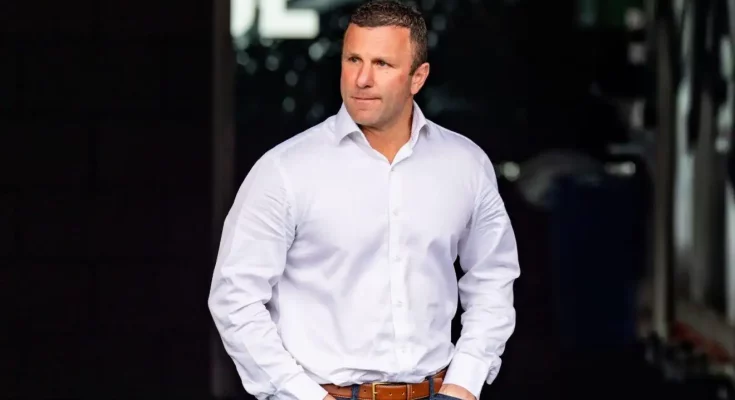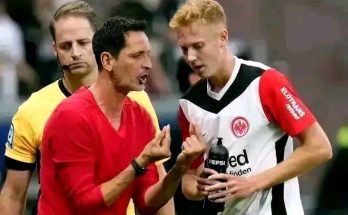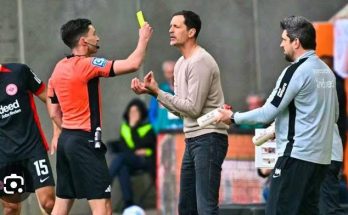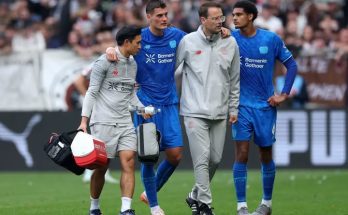Hull Kingston Rovers head coach Willie Peters has issued a pointed warning to his squad and Super League rivals alike, drawing an ambitious yet telling comparison between his team’s mentality and that of the three-time NRL Premiership-winning Penrith Panthers. As the season edges closer toward its dramatic crescendo, Peters’ words are more than mere motivation—they’re a declaration of intent, a call to arms, and perhaps a glimpse into the psychological warfare unfolding behind the scenes of a ferociously contested Super League campaign.
Hull KR are currently locked in the fight for a top-six playoff spot, but their trajectory this season has made them one of the most compelling sides to watch. After a mixture of emphatic wins and frustrating defeats, Peters has attempted to instill a sense of identity, consistency, and mental edge in his squad. In referencing the Panthers—a side renowned for their elite culture, unrelenting standards, and defensive dominance—Peters isn’t suggesting that KR have achieved that level yet. Rather, he’s making it clear that the mindset of becoming elite must be seeded now if the club wants to challenge the likes of Wigan, St Helens, or Catalans Dragons come playoff time.
The Penrith Panthers are, after all, the gold standard in modern rugby league. They’ve built a dynasty on a foundation of depth, development, and tactical superiority. Peters spent time in the NRL and has observed firsthand the processes and day-to-day expectations within elite clubs. What he’s trying to replicate at Hull KR is not necessarily a copy-paste of what Ivan Cleary has done at Penrith, but a borrowing of principles: discipline, accountability, and an unshakable belief that every training session, every minute on the field, is part of something bigger than the individual. He wants KR players to feel the weight of expectation not as a burden, but as an honor.
Peters knows full well that building that kind of cultural infrastructure takes years. But the urgency with which he’s addressing it now is telling. His message is not just for the players but for everyone associated with the club—from fans to backroom staff. The run-in to the playoffs is where mental fatigue and self-doubt can creep in. It’s where clubs with no clear identity get exposed. Peters doesn’t want Hull KR to be one of those clubs, and he’s hammering that home with every public word and private session.
The Robins’ recent form shows flashes of brilliance that have fans daring to believe, but inconsistency continues to plague them. The challenge, as Peters sees it, isn’t just tactical—it’s spiritual. When the Panthers line up, they don’t just play the game—they impose themselves upon it. Every movement is deliberate. Every tackle carries menace. Every shift in tempo comes with a calculated edge. That’s the difference between being good and being great. That’s the line Peters wants Hull KR to cross.
The coach has praised his team’s resilience in recent weeks, especially in tight contests where game management and defensive resolve proved crucial. But he’s also been brutally honest about the lapses in concentration and intensity that have cost them dearly. Whether it’s missed tackles, miscommunication, or poor discipline in set completions, these are the micro-moments that separate contenders from pretenders. In referencing Penrith, Peters is challenging his side to raise their floor as much as their ceiling. Excellence, in his view, isn’t just about big performances—it’s about consistency in the basics, an attitude that sees mediocrity as unacceptable even when the scoreboard says otherwise.
This approach is evident in his training methods. Players have reported an increased focus on scenario-based drills that mimic high-pressure moments, repeated with a frequency that seeks to hardwire composure into muscle memory. The idea is to make mental toughness a default setting rather than a reaction to adversity. It’s also a way to foster leadership across the squad, with younger players being encouraged to take on more responsibility, both on and off the field.
Peters has also been vocal about the need for players to understand the historical weight of the shirt. Hull KR has a proud, if turbulent, history—marked by passionate fans, bitter rivalries, and flashes of greatness. He wants the current crop of players to carry that legacy with pride but also with the awareness that they’re building something for the future. In his view, it’s not enough to chase short-term success. The aim must be sustainability. Culture, not luck, is what breeds dynasties.
One of the telling aspects of Peters’ approach is his insistence that success in the Super League isn’t just about beating the top sides; it’s about refusing to drop standards against anyone. The Panthers never play down to their opposition. Whether it’s a grand final or a bottom-of-the-ladder clash, their identity doesn’t change. That’s a lesson Hull KR has had to learn the hard way. Sloppy losses against supposedly weaker sides have derailed momentum and called into question the team’s psychological fortitude. Peters is determined to eliminate that inconsistency—not through fear, but through self-respect.
Off the field, the Robins’ recruitment and retention strategies are starting to reflect this cultural shift. The club is investing in players not just for their raw talent but for their character and fit within a system that demands high standards. There’s been a noticeable reduction in reliance on journeyman players and an increased emphasis on youth development and long-term planning. Peters has hinted that the club is actively identifying “culture carriers”—players who may not always grab headlines but who lead by example and set the tone in the dressing room.
Another component of the Penrith comparison is defensive cohesion. The Panthers have redefined the role of defensive pressure as a form of attack, often suffocating opponents into submission before the scoreboard even begins to reflect their dominance. For Hull KR, defense has historically been a weak point, particularly in transition phases and second-phase play. Peters has taken this on as a personal project, working with his assistants to develop systems that minimize risk while maximizing line integrity. It’s not just about stopping tries—it’s about controlling territory, dictating tempo, and demoralizing the opposition with relentless pressure.
As the business end of the Super League campaign approaches, the table remains congested. A few points can separate glory from disappointment. In such a climate, mental edges and cultural solidity often determine who rises and who fades. Peters has made it clear that he doesn’t want Hull KR to just sneak into the playoffs—he wants them to enter as a threat. The reference to Penrith is a rallying cry: don’t just aim to compete, aim to dominate. And do it with a ruthless professionalism that becomes your identity.
The remaining fixtures are brutal, with clashes against playoff hopefuls and established heavyweights. Every match now carries increased importance—not just for points, but for the habits they reinforce. Peters has spoken about “stacking wins,” but just as crucially, he’s focused on “stacking performances.” Even in defeat, he wants to see resilience, execution, and learning. The pathway to becoming a great team isn’t linear—it’s forged in fire, setbacks, and moments of introspection. What matters is that the players buy in fully to the vision.
Fans, too, have their role to play. Hull KR’s home support is among the most passionate in the league, and Peters believes that energy can act as a force multiplier. He’s urged the community to turn Craven Park into a fortress—not just in voice but in belief. If the players walk out feeling like they’re backed by a movement rather than just an audience, it can add that extra percentage when margins are razor-thin. It’s no coincidence that some of KR’s best performances this season have come at home, where the noise and unity become palpable.
Ultimately, Peters knows that words are only as powerful as the actions that follow them. Drawing a comparison to the Panthers is bold, and critics may view it as premature or even presumptuous. But it’s also strategic. It sets a benchmark. It forces a mindset shift. It dares the players to hold themselves to an uncompromising standard. In elite sport, belief must precede achievement. You can’t stumble into greatness—you have to pursue it with conviction.
Whether Hull KR fulfills that potential this season remains to be seen. The ingredients are there: a motivated coach, a promising squad, and a hungry fanbase. But now comes the proving ground. The run-in will test everything Peters has tried to build. The lessons from Penrith are clear—sustain excellence, punish lapses, and never take a step back. If Hull KR can internalize those lessons and execute when it matters most, they won’t just make the playoffs. They might just become something far more enduring.



